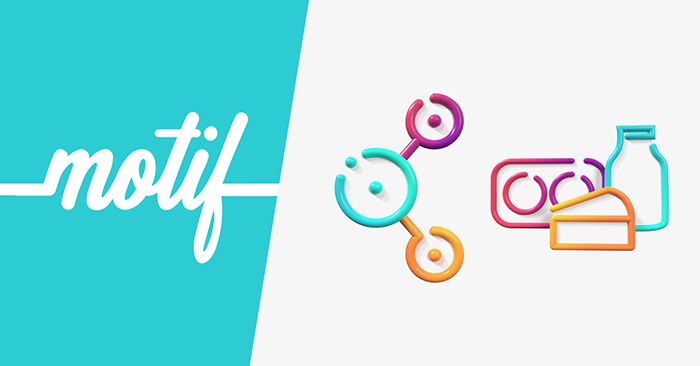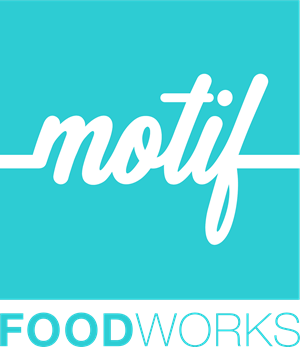Motif FoodWorks Receives GRAS Status For HEMAMI Protein

After receiving Generally Recognized as Safe (GRAS) status earlier this month, Massachusetts-based food technology company Motif FoodWorks announced last week that its patented heme protein HEMAMI has launched for large-scale commercial distribution. In support of its forthcoming launch, Motif is also set to break ground on its new R&D production facility in Northborough, Mass. next week.
What is Motif?
According to CCO Michele Fite, Motif FoodWorks is a B2B-focused company “delivering the ‘what’s inside,’ of alternative-meat products, with the goal of delivering technology that will improve the taste, texture and eating experience of alternative meat products rather than launching its own branded analogues, like the Impossible Burger. The company’s tech portfolio spans from alternative meat, to alt-dairy to other categories in the plant-based food space; however, Fite said its current focus for commercialization is on improving animal-free meat such as burgers, pork and chicken.
“Some of the meat alternatives, plant-based burgers, plant-based pork, plant-based chicken… they don’t taste so great,” Fite stated. “Which is why you’re reading a bit about some of the slowdown in plant-based burgers – it’s not the greatest tasting stuff. Our goal at motif is to create crave worthy food for consumers.”
“We will be working, at this point in time, in delivering those new technologies to our food manufacturer partners to help them change and improve their formulations and deliver great tasting products,” she added.
By combining two of its technologies – HEMAMI and alt-meat texture-focused technology APPETEX – Fite said the latter is able to replicate the “bite-down” sensation and “springiness” of animal tissue in traditional meat while the former emulates the taste and aroma. HEMAMI is made using precision fermentation, which she noted is similar to the process used by fellow alt-meat and dairy companies; however, according to Fite, the resulting heme ingredient has a “characteristic, flavor and aroma that is unique only to us.”
The three-year-old company originated from Ginkgo Bioworks, a cell programming company that produces industrial applications across food and agriculture, and in 2019 officially branched off as Motif FoodWorks in order to focus on developing alternative protein solutions. Earlier this year Motif closed a $226 million funding round to support its R&D capabilities and prepare for launching a commercialized product.

What Does a GRAS status mean?
A GRAS certification is necessary when a food or beverage manufacturer wants to use any new ingredient or an existing ingredient in a new way in CPG products. Those additives can earn this status either through the FDA or by a third-party panel of qualified experts.
For HEMAMI, its GRAS certification covers its use as a flavor and aroma additive in substitute-meat products. A second petition covering the ingredient’s use as a color additive is currently under review. Fite said Motif’s regulatory team has worked with the FDA for the past year to secure its status and ensure the product’s process and approach are in compliance with the agency’s safety standards.
The growth of the alternative meat category is restrained by consumer concerns over product taste, the company said, citing a Mintel report that found 67% of Americans said they would eat more plant-based options over meat if the products themselves tasted better. Many alternative meat companies promote sustainability and animal welfare as core tenants behind innovation, and although Motif acknowledges the positive impact of its plant-based products, Fite emphasized the company is working to differentiate itself on the basis of flavor in addition to those attributes and noted that this certification will make that goal possible.
What’s next?
Scaling the technology through the increased capabilities of its new R&D facility, said Fite. Once complete, the 65,000 sq. ft. Northborough facility will include three “pilot plants” for fermentation, ingredients, and finished-product production, as well as food-tech analytical and bioprocessing labs. The new site will produce HEMAMI and its texture technology APPETEX on a “pilot-scale,” serving as a test site before the technology is distributed to large-scale manufacturers. The company said it expects APPETEX to be available for commercial distribution by late 2022. The facility will also be used to validate and orchestrate consumer testing for finished products created in-house.
“To execute on our holistic innovation process and rapidly develop and commercialize our proprietary technologies and products, we need to control the facilities and capabilities required to test, validate and scale our food-tech,” said Jonathan McIntyre, CEO of Motif FoodWorks, in a press release. “We look forward to the opportunities and innovation our new facility will bring to Motif and our customers.”
The company’s current headquarters in Boston’s Seaport District is also expanding to keep up with its rapid growth from a team of three to over 70 in under three years. Fite said it’s now time for Motif to begin preparing for large-scale distribution: consumers will begin seeing the company’s technology in alt-meat products in early 2022, while the facility is expected to house up to 100 employees when it is completed in mid to late 2022.
Outside of Motif’s facility, the animal-free protein alternative space continues heat up with food tech company The EVERY Company announcing last week it raised $175 million to continue scaling production. Additionally, CPG arm of The Urgent Company, Perfect Day, announced yesterday it will acquire ice cream maker Coolhaus and transition the brand’s dairy-based products to use the company’s animal-free milk proteins.

















